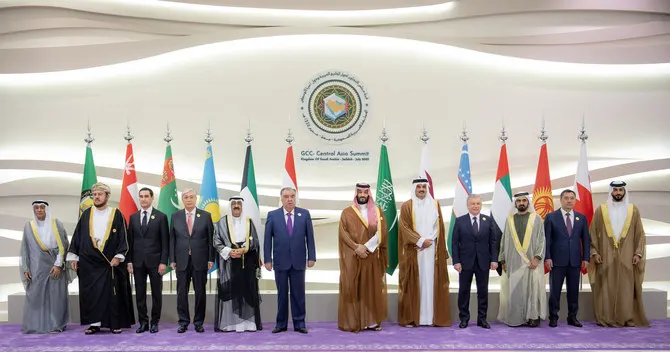Arab Gulf states and Central Asian countries cemented their political, security and economic ties on Wednesday during the GCC-C5 Summit, a gathering of the leaders of the Gulf Cooperation Council member states and the presidents of Uzbekistan, Turkmenistan, Kazakhstan, Tajikistan and Kyrgyzstan.
At the event, which took place in in the Saudi city of Jeddah, a Joint Action Plan for Strategic Dialogue and Cooperation between GCC members and Central Asian states was approved, covering the period from 2023 to 2027.
In a joint statement at the end of the summit, the leaders of the two blocs stressed the importance of strengthening political and strategic relations at the collective and bilateral levels, and continuing coordination in order to achieve regional and international security and stability, confront challenges and work to ensure flexibility” in fields ranging from supply chains to food security.
Among other issues, they expressed concern about the growing rhetoric of racism and Islamophobia, and acts of violence against Muslim minorities and Islamic symbols.
“The action plan with Central Asia includes activating cooperation in various fields,” said Jasem Mohamed Albudaiwi, secretary-general of the GCC. “We are working on consolidating what has been agreed upon, and building consultation and coordination mechanisms with Central Asia.”
In recent years, there has been a growing interest in deeper economic cooperation between the GCC and Central Asia.
The regions have complementary economies, with GCC countries enjoying a wealth of oil and gas resources and Central Asia benefiting from a young and growing workforce. There are also opportunities for cooperation in the areas of trade, investment and tourism.—Arab News










